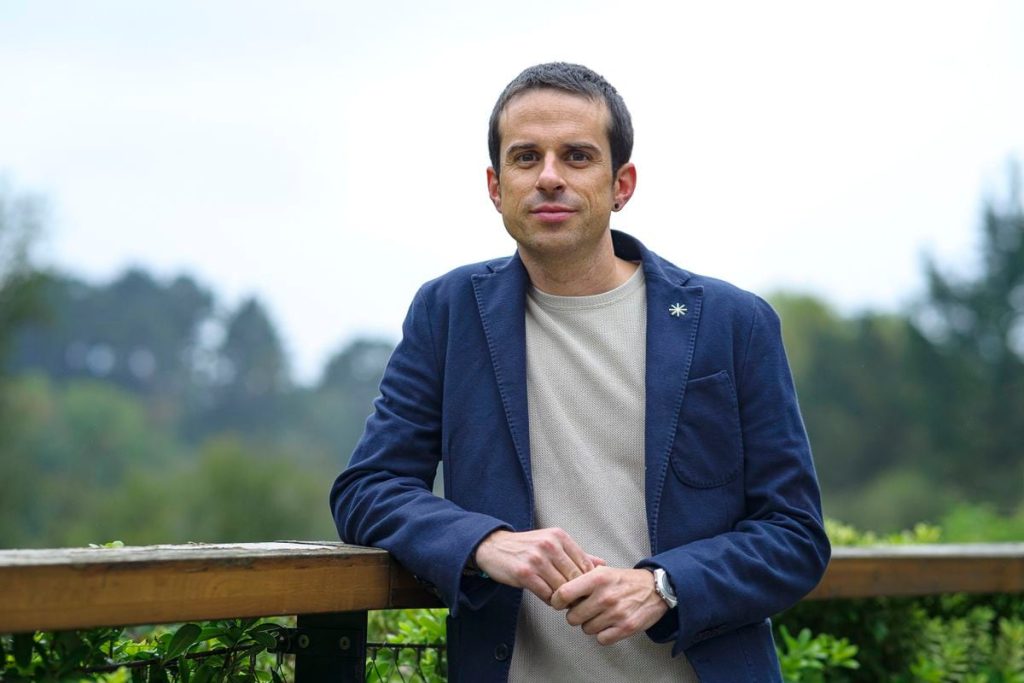The selection of Pello Otxandiano as EH Bildu’s candidate for lehendakari in the upcoming Basque elections of 2024 marks a departure from the temporary nature of his predecessors Laura Mintegi in 2012 and Maialen Iriarte in 2016 and 2010. Both were stand-ins for Arnaldo Otegi when he unsuccessfully attempted to run as a candidate after his disqualification. Otxandiano, aged 40, represents a generational renewal and a long-term commitment within EH-Bildu. This contrasts with Otegi, aged 65, who has hinted at not seeking renewal in two years and stepping back from the political forefront. Together, they form a dual leadership structure, similar to that of the PNV, with an institutional candidate on the rise and a party leader in the process of leaving.
Otxandiano, unanimously chosen by the EH Bildu leadership, deviates from the traditional profile of a candidate from the left-wing nationalist movement. He holds a doctorate in Telecommunications Engineering, worked as a university professor, and conducted research at the Mondragon University and Chalmers University of Technology in Sweden. Interested in studying public policies in Scandinavian countries, he has been instrumental in shaping EH Bildu’s economic strategy and has cultivated relationships with Basque labor, business, and social sectors to explain his policy proposals. In addition, he has been deeply involved in EH Bildu’s local politics, having served as a councilor in Otxandio (Bizkaia) since the coalition’s founding in 2011.
The Vasco Sociometer survey published on December 1st indicates that EH Bildu is trailing the PNV by only four seats, compared to the 10-seat difference in the 2020 elections. With Otxandiano’s profile, EH Bildu is signaling a vision for the future that extends beyond the upcoming Basque elections. The party aims to attract new social sectors and commit to more than one legislative term, with a clear intention for Otxandiano to become lehendakari. However, EH Bildu’s efforts to rejuvenate and modernize its image, along with its shift towards democratic positions and respect for diversity, still face a significant obstacle: the lack of full acknowledgment of its past ties to ETA by its core group Sortu.
This was highlighted recently by PSE’s candidate for lehendakari, Eneko Andueza, who emphasized that EH Bildu’s entry into Ajuria Enea would be impossible without this recognition. Such acknowledgement is crucial, particularly for clarifying to newer generations that violence cannot be used to achieve political goals, especially within a democracy. Despite EH Bildu’s efforts to evolve, the cloud of past associations with ETA continues to loom over its path. Moving forward, the party must reconcile with its history to gain broader legitimacy and appeal across Basque society.
As EH Bildu navigates its internal transformations and external challenges, the party faces a critical juncture in its journey towards political maturity and societal relevance in the Basque Country. Otxandiano’s candidacy symbolizes a shift towards a younger leadership and a more forward-looking vision for EH Bildu. With the upcoming elections in 2024, EH Bildu is presented with an opportunity to redefine its identity and strengthen its position as a key player in Basque politics, provided that it can effectively address its historical baggage and engage with a broader spectrum of society. Ultimately, the success of EH Bildu’s political project hinges on its ability to adapt to changing dynamics, engage with diverse voices, and chart a course towards a more inclusive and democratic future for the Basque Country.


